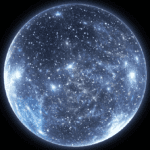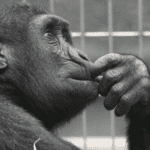In our reality, we are bound by certain laws of physics. Two of them are particularly important to answer this question. The first one is Causality. Wikipedia describes Causality as follows.
Causality (also referred to as Causation, or Cause And Effect) is influence by which one event, process, state, or object (a cause) contributes to the production of another event, process, state, or object (an effect) where the cause is partly responsible for the effect, and the effect is partly dependent on the cause. In general, a process has many causes, which are also said to be causal factors for it, and all lie in its past. An effect can in turn be a cause of, or causal factor for, many other effects, which all lie in its future. Some writers have held that causality is metaphysically prior to notions of time and space.
Causality makes it almost impossible for us to imagine anything that is now or ever was didn’t have a cause or, in this case, a Creator. If Causality is only a local phenomenon, then outside our local reality there can most certainly be something that exists without a cause.
The second law or function of our reality is Time. Wikipedia describes Time as follows.
Time is the continued sequence of existence and events that occurs in an apparently irreversible succession from the past, through the present, into the future. It is a component quantity of various measurements used to sequence events, to compare the duration of events or the intervals between them, and to quantify rates of change of quantities in material reality or in the conscious experience. Time is often referred to as a fourth dimension, along with three spatial dimensions.
Time has long been an important subject of study in religion, philosophy, and science, but defining it in a manner applicable to all fields without circularity has consistently eluded scholars. Nevertheless, diverse fields such as business, industry, sports, the sciences, and the performing arts all incorporate some notion of time into their respective measuring systems.
Simply put, anything and everything that occurs in our reality must have had a preceding event happen. Since time is an integral part of our universe (space-time), we can’t imagine a reality where time does not exist. For example, a time before God.

To sum it all up, the question of who created God has no meaning outside of our reality. A creator (God) could simply exist without another creator and without a time before his existence.
Let me know what you think in the comments below.







I agree with Mary’s comment. We so often think that we know so much and understand just about everything. Our brains are very big that we are very arrogant. In fact, one of the most intelligent things that we can think of is that we know almost nothing.
To understand a creator of God would mean that we understand God. In our creation, we have laws of physics that govern the interactions of physical elements and how energy and forces act on them. God, the creator of everything and everything that we can possibly understand, has complete control over his creation. Since we… Read more »